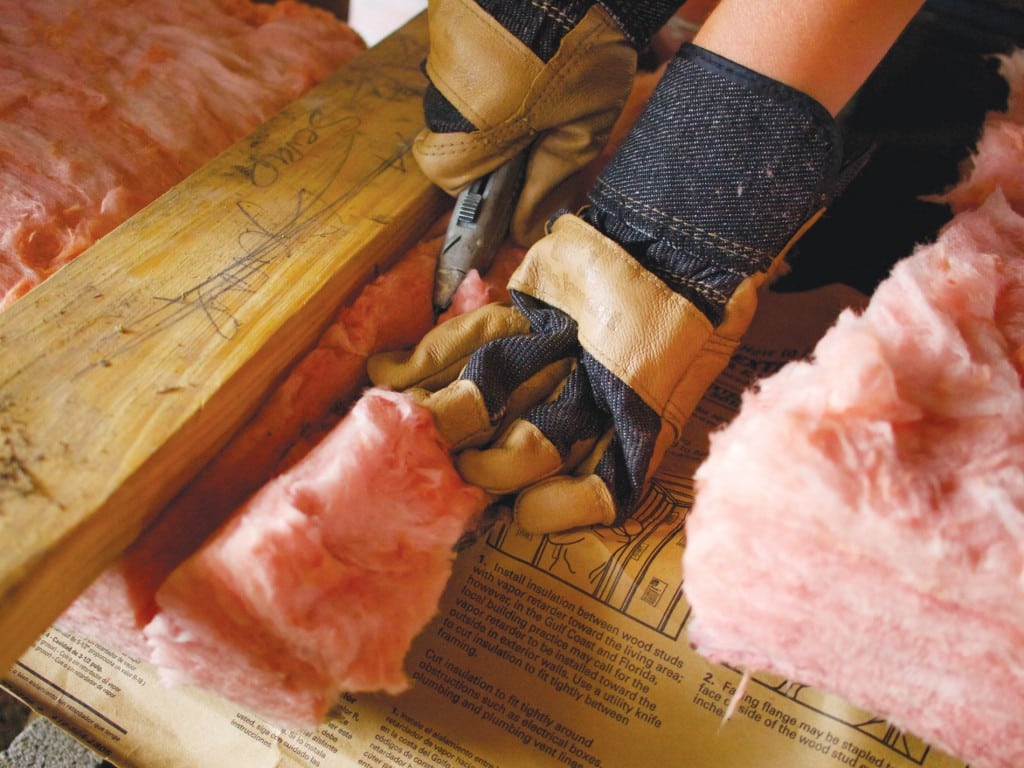Dear Pat: I want to make my home more energy-efficient, but some of the work is more than I can do by myself. When I’m hiring contractors, how can I be sure the work is of good quality? — Jerry C.
Dear Jerry: The good news is that there are many contractors performing high-quality energy-efficiency work. You’re smart to first determine what you can do to ensure your contractors deliver the quality you’re paying for.
Start with a home energy audit by a qualified and experienced energy auditor. Your electric co-op may offer a free or discounted audit by one of its energy advisors or have a list of trusted energy auditors in the area.
Ask the auditor to specify the products and the quality standards for each recommended efficiency measure. The auditor can also help by inspecting the finished work.
Using an auditor throughout your home energy upgrade will cost several hundred dollars, but it can pay off: You will know what work is truly needed, and it will help prevent poor quality or incomplete work.
Once you have a clear description of the work to be done, you’ll need to identify contractors. Some co-ops offer financial incentives and/or know of contractors who have experience or training with energy efficiency.
The energy auditor can help you with questions to ask potential contractors. Here are a few:
- Are the contractors licensed and insured in your state? Do they have any additional training? For example, the Building Performance Institute (BPI) certifies contractors who have training in whole-home energy-efficiency improvements.
- For heating and cooling projects, how will the contractor decide what size equipment is needed in your home? Will the contractor inspect duct work and insulation throughout the home?
- For insulation and weatherization upgrades, what is your insulation level now? What should it be? Will the contractor find and seal any air leaks before installing the insulation?
- For all projects, who will actually be doing the work? The person you are talking to? An installer employed by the same company? A subcontractor?
Make sure to do plenty of research before fully engaging a contractor. Some more tips:
- Don’t take the first offer. Try to get at least two bids. The lowest quote might not necessarily be the best: Sometimes it’s hard to compare bids unless they are itemized correctly. If one quote is significantly lower than others, inquire closely about the reasons for the difference.
- Check their work: Ask for and check references, read online reviews and ask your local experts about any experience they have with the contractors.
Once you have chosen a contractor, make sure you and the contractor agree on the written description of the work to be performed, the expected timeframe for completion and the price. If the contractor insists on providing an estimate rather than a firm bid, you should discuss what might cause the final bill to be higher than quoted. Some common areas of tension among contractors and their customers are also worth discussing:
- How often and when will the contractor communicate with you about the status of the project?
- How clean does the work area need to be at the end of each day?
- What is the daily work schedule?
It’s best not to pay the contractor until work is completed and inspected. Both you and the energy auditor should inspect the work. Your co-op’s energy advisor may also be able to inspect or give you advice on what to look for. For example, is the window flashing installed correctly? Are the ducts sealed properly?
Finally, if you have a good experience with a contractor, pass the information along to friends and neighbors, or write a helpful review. A good home contractor can be hard to find!




1 Comment
You may not have heard about the KEEM (Knoxville Extreme Energy Makeover) program. I am one of the qualified recipients. I know for a fact the attic insulation is only about 1-1/2 feet deep – requirement is 36″ – they don’t plan to add insulation. The “sniffer”, when run along the inside roof line, showed long, deep purple arrows emanating from the display. I asked what that was: insulation is not all the way out to the roof line – no remediation will be done. They will replace a 4-yo heat pump – true, it was a bad install, e.g. original wood box under air handler, which is not up to code. They think they will replace excellent washer & dryer (both super capacity, with 1 load per week, dryer used only in winter) – I won’t allow the replacement. Lady bugs come through one of the windows; top of some bottom windows have ice on the inside, some get covered in dirt – they are behind closed blinds & insulated curtains. The answer: they just need new seals – no plan to do anything about that. The front door doesn’t open, as it has collapsed from the top right hinge to the top left, causing the door to jam. It’s a problem I inherited with the house years ago. They say the program is about safety, not energy efficiency. The house inhales & exhales air very deeply. Th is elderly lady lives at 60-degrees in winter & freezes. The monetary funding is from those taxpayers who pay into FICA. Personally, I think it’s a scam. What do you think???